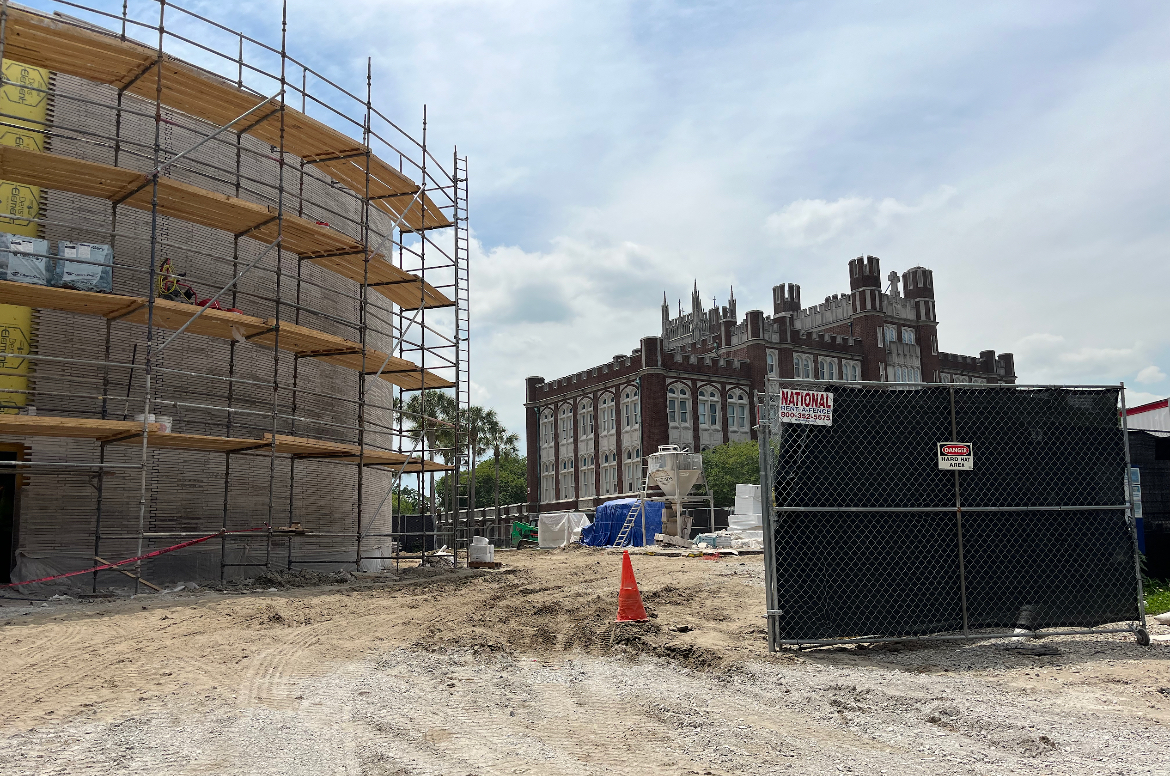Psychology junior Zoe Marceaux thought her day was going to be good as she walked to her class. This was not the case. As she walked to Monroe Hall, she said the construction workers at the site of the new chapel catcalled her, making her feel “uneasy.”
As she walked by the chapel construction, one of the workers said, “Goddamn.”
Marceaux said this was not a one-time offense, and she became fed up with the workers’ remarks.
She said she turned to the workers and said, “Well, s—, if you’re gonna say something so distasteful, you may as well be quiet about it.”
Even after her response, Marceaux said the construction workers did not quiet down; instead, it got worse.
They continued to degrade her with words saying things like, “Oh I didn’t know she could speak,” which she said made her feel even worse.
Marceaux is not the only one who has had this problem on campus. There have been other instances where women have said they have also been catcalled by construction workers on campus – though none of them have reported it to the police or the construction company.
Loyola Police lieutenant Patrick Martin, said LUPD is here for students and if no one comes to them with a problem then they don’t know it is happening.
Carol Markowitz, chief operating officer, said that there are three different contractors working on or adjacent to Loyola.
Markowitz said she was unaware of the incidents happening on campus but reassures students that she knows now and has contacted the companies, reminding them of Loyola’s no-tolerance policy for sexual harassment.
“All members of the Loyola community, guests, and visitors have the right to be free of discrimination,” she said. “Members of the Loyola community – including our third-party contractors and vendors – are expected to conduct themselves in a way that does not violate the rights of others.”
Sophie Sandberg, a New York City street artist and founder of Catcalls NYC, an activist group that uses colorful chalk to share people’s stories word for word on the sidewalks of New York City, said she started this initiative to give a voice to young people to fight back the social norm.
The social norm is to tell women that it is their fault and they provoked the harassment, which is not the case, Sandberg said. The reason she started Catcalls NYC is to make it clear that it is not the victim’s fault.
Sanberg said catcalling can cause anxiety and low self esteem in young women.
“The goal of the chalk is to hold people accountable, to hold harassers accountable,” she said.
In a 2021 study done by Ipsos, they said that 80% of women have experienced some type of sexual harassment in public settings, and 76% of people have witnessed sexual harassment in public.
Marceaux said it saddens her to see Loyola, a campus she sees as a safe space, turn into a place where she has to worry about which entrance she is going to take to get to class.
“For someone that’s in the workforce and that works for the school. It’s just disappointing and just makes me feel so upset,” she said.
















